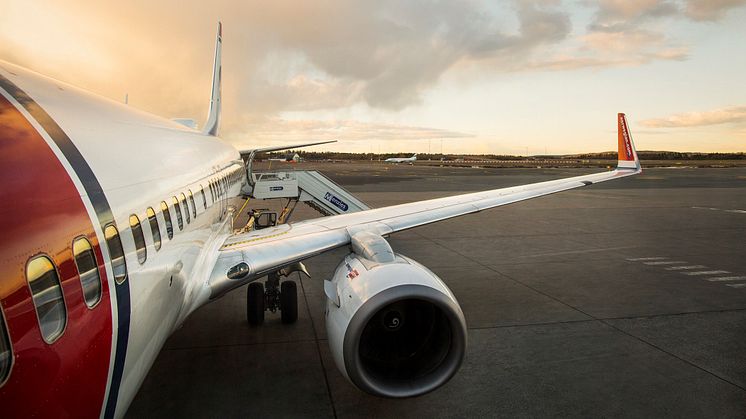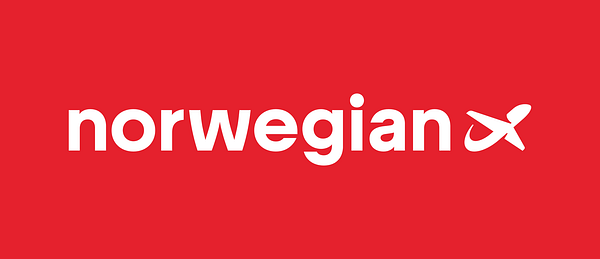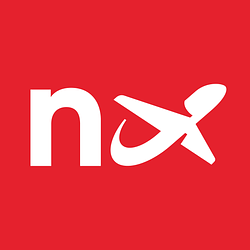
Press release -
Norwegian reports higher unit revenue and improved punctuality in February
Norwegian’s traffic figures for February show that the company continues to deliver on its strategy of moving from growth to profitability, with significant improvements in unit revenue and a better punctuality. Due to the COVID-19 virus Norwegian currently experiences reduced demand on some routes and have decided to cancel 22 flights between Europe and the U.S.
Norwegian carried 1,955,585 customers in February. The planned capacity reduction and optimization of the route network continues to impact the figures positively. The punctuality for February was 84.2 percent and the load factor was 81.7 percent, up 0.2 percentage points.
“I am pleased that we continue to deliver on the strategy of returning to profitability following several years of significant growth. This is the eleventh consecutive month that the planned capacity reduction has impacted the unit revenue positively. I am also pleased that our on-time performance continues to improve as I know how important punctuality is for our customers. However, we are currently experiencing reduced demand on some routes due to the coronavirus and have therefore cancelled some flights between Europe and the U.S.,” said CEO of Norwegian, Jacob Schram.
The company’s CO2 emissions this month remain unchanged at 75 grams per passenger kilometre. The figures are influenced by the fact that the company has been forced to use wetlease aircraft. Norwegian has one of the world’s most environmentally friendly fleets. Thanks to the young fleet, the company has reduced its per passenger emissions by 33 percent since 2009. In February 2020, more than 37,000 customers who made a booking on Norwegian’s website chose to compensate the carbon footprint of their flight.
Change in demand due to COVID-19
Norwegian has during the past few days experienced reduced demand on some routes, particularly on future bookings. Bookings for flights departing in the coming weeks are less affected. The company has decided to cancel 22 long-haul flights between Europe and the U.S. from March 28 to May 5. Norwegian has a limited number of flights to Northern Italy and other regions heavily affected by the virus. In addition, the company has a higher share of leisure traffic, which seem less affected than business traffic. The company has also already reduced its capacity by up to 15 percent in 2020. Norwegian is monitoring the developments closely and is continuously evaluating additional changes to its schedule.
The following routes are affected: Rome – Los Angeles; Rome – Boston; Rome – New York (reduced number of departures during selected weeks on all these routes) and London – New York (three daily departures are reduced to two on some days).
Affected customers will be contacted by Norwegian and offered a new itinerary.
Given the uncertainty and ongoing impact on overall demand for air travel, Norwegian withdraws its 2020 guidance provided to the market on February 13, 2020. At this stage, it is too early to assess the full impact on our business.
For detailed traffic figures, please see the attached pdf.
Topics
Categories
Norwegian in the UK and Ireland:
- Norwegian carries almost 6 million UK passengers each year from London Gatwick, Edinburgh and Manchester Airports to 30 destinations worldwide
- Norwegian is the third largest airline at London Gatwick, with 4.6 million yearly passengers, and over 1,200 UK-based pilots and cabin crew
- In 2014, Norwegian introduced the UK’s first low-cost, long haul flights to the U.S. - the airline now flies to 11 U.S destinations, Buenos Aires and Rio de Janeiro from London Gatwick
- Norwegian is the only airline to offer free inflight WiFi on UK flights to more than 30 European destinations and 13 long-haul destinations.
- The airline has one of the youngest aircraft fleets in the world with an average age of 4.6 years, including next-generation Boeing 787 Dreamliner, Boeing 737 MAX and Boeing 737-800s
- Norwegian has been voted ‘Europe’s best low-cost carrier’ by passengers for six consecutive years at SkyTrax World Airline Awards from 2013-2018, along with being awarded the ‘World's best low-cost long-haul airline’ in 2015, 2016, 2017, 2018 and 2019
- Norwegian Reward is the airline's free to join award-winning loyalty programme offering members CashPoints and Rewards that reduce the cost of Norwegian flights


